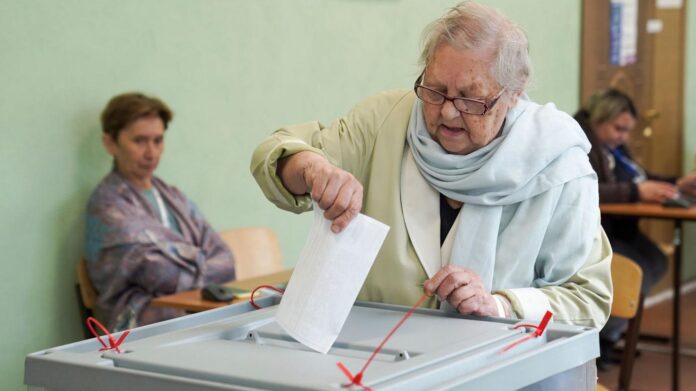
In the wake of the war of aggression against Ukraine, regional elections will be held in Russia starting this Friday. No real opposition or competition is permitted in the votes for new governors, regional parliaments and mayors. Nevertheless, the vote is seen as an important test of the mood for the Kremlin, which is under pressure in particular due to the Ukrainian offensive on Russian territory in the Kursk area and the shelling of border areas.
By Sunday, a total of more than 57 million eligible voters are called upon to cast their votes in the world’s largest country by area. Independent observers from the “Golos” organization, which is ostracized in Russia as a “foreign agent,” expect further massive attempts at manipulation by the authorities, with which they hope to help the candidates of the Kremlin party United Russia to victory.
Kremlin chief Vladimir Putin claimed on Thursday that Russian society had grown closer together in its support for his war. Putin himself had himself declared the winner again in March in a presidential election that was overshadowed by unprecedented allegations of fraud.
Controversial elections in St. Petersburg and Moscow
Governor elections are scheduled in 21 regions, including in St. Petersburg, Putin’s hometown. Alexander Beglov, the controversial Putin confidant who has been in power since 2018, is running for re-election there.
The 68-year-old has been criticized for running the city, which is popular with tourists, into the ground. In the former Tsarist metropolis, many residents believe that hundreds of cultural monuments are falling into disrepair, many of which are UNESCO world heritage sites. A prominent critic was the Petersburg businessman Yevgeny Prigozhin, who led the Wagner private army and died in a plane crash a year ago. Prigozhin called Beglov a “scumbag” who was out of place in the city.
In the Russian capital Moscow, a new city parliament is being elected parallel to a major celebration of the founding of the metropolis. Observers from the organization “Golos” criticized the fact that it is now almost impossible to vote on paper as a violation of electoral law. Internet voting, on the other hand, has long been criticized in Russia because of the easy possibilities for manipulating the results.
War also an issue at the polls
In some regions bordering Ukraine, especially the Kursk and Belgorod regions, people have been able to cast their votes since the end of August due to hostilities. However, in some towns, local elections have been postponed for security reasons.
The liberal opposition party Yabloko, which unlike other forces is not banned, criticized pressure on candidates in advance. The party complained that “hundreds of our candidates at various levels were not allowed to vote under absurd and fabricated pretexts with the help of compliant election authorities and courts.” Yabloko called for people to vote for peace and freedom. The party itself only puts forward candidates or supports applicants who are in favor of an agreement for a ceasefire in the war, it said.
Yabloko also appealed in a statement to voters not to support any of the parties represented in the State Duma because they were responsible, among other things, for the repression in Russia and for the withdrawal from disarmament treaties and international agreements.
Observers complain about apathy and lack of competition
In several analyses, “Golos” has given the vote a damning review. The organisation has repeatedly declared – even after the imprisonment of its co-chairman Grigori Melkoniant – that it is fighting for the rights of voters in Russia. There is fear and apathy in Russian society, it says in one analysis. Many candidates have refrained from political engagement because they do not want to risk coming into conflict with one of the country’s repressive laws. The political field has been cleaned up, and strong candidates have not been allowed to run from the outset.
“The power apparatus fears real competition and is not sure of real support from the population,” said “Golos”. There are also no debates. As a result, there are fewer parties and candidates than in previous elections in Russia. Overall, “Golos” attested to a further decline in the electoral system in Russia. In the end, only the Kremlin-friendly candidates have a chance. The Kremlin’s most important instrument in achieving its goals is the Ministry of Justice, which can declare any candidate or elected politician as foreign agents or extremists at its discretion and thus silence them.
© dpa-infocom, dpa:240906-930-224585/1
This is a message directly from the dpa news channel.
